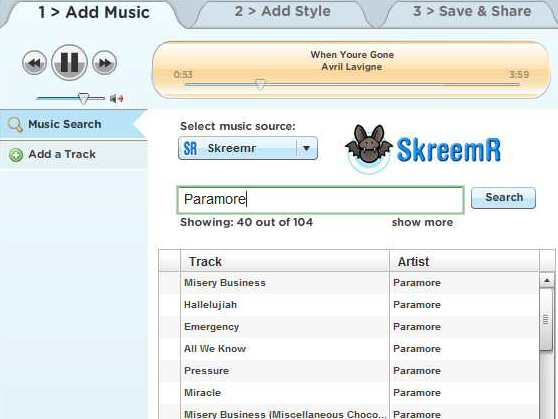20 websites you never realised you needed
Little-known services you'll wonder how you lived without

The internet has changed the world, mostly through big sites like Google, Amazon, MySpace and Facebook.
But other smaller sites can, if anything, be even more useful, if only you can find the right ones.
There's no need for you to spend ages doing that, though, because we've tracked down 20 of the best little-known sites, some of which could also change the way you use the web.
1. Meet people half way
It's time to catch up with that distant friend you've not seen in ages. But where can you get together? Enter their address and yours at MeetWays, choose where you'd like to meet - coffee shop, pub? - and this helpful site will suggest some convenient half-way points.
2. Extend Twitter
Microblogging sites like Twitter are fun, but sometimes you'll want to say more than will fit into a 140 character post. That's where TinyPaste comes in. Type your lengthy message into a box, click submit and you'll get a short link like tinypaste.com/471ca. Paste this in your Twitter feed (or anywhere else) and anyone who clicks it will read your full comments. Quick, simple, and no registration required.
3. Access your email from anywhere
NutshellMail makes it easy to access, manage and monitor messages from all your email and social networking accounts through one personal inbox. So you can say goodbye to the hassle of logging in to all those individual accounts. Parents can add their kid's email addresses to monitor their incoming messages. And it'll let you get at your MySpace or Facebook messages at work even if your company firewall blocks social networking sites, because you don't log in to them - NutshellMail does that.
4. Find great live music
MP3s are great, but live music is better, and HearWhere is the perfect tool to find out what's going on near you. Choose the type of music you like (pop, acoustic, punk, soul and many more), your location, and in seconds you'll have a detailed list of all the closest shows. We tested the site by asking it to list all shows on 6th December within 40 kilometres of Derby, and it returned 43 - that's impressive. Well worth a look.
Get daily insight, inspiration and deals in your inbox
Sign up for breaking news, reviews, opinion, top tech deals, and more.
5. Keep up with Google
Google is such a big company that it's easy to miss all the services and products that they offer. Like the web directory that allows you to browse the web by topics like Arts, Business or Health, the notebook that can store clips from web pages as you're browsing, and software downloads including one of the best 3D modelling tools around. If you'd like to catch up with everything Google has to offer then visit Simply Google, where they've provided all the links you need on a single page.
6. Declutter your Inbox
Organising your emails can be tricky, as the interesting personal messages quickly get drowned in a flood of newsletters, social networking messages and updates from shopping sites. But an OtherInbox webmail account could be the solution. Create new addresses like amazon@JohnSmith.otherinbox.com for Amazon, facebook@JohnSmith.otherinbox.com for Facebook, and so on for other sites, and OtherInbox then sorts all their incoming mail back into the appropriate folders. And if a company sells your email address to spammers than you'll immediately know who's responsible. You could do much the same thing with rules and filters, but OtherInbox is much easier - recommended.
7. Raise money online
If you're looking to raise money for a charity or club then you could just add a Paypal 'Donate' button to your website, but the chances are you'll have much more success with ChipIn. This clever free Flash applet can be embedded in most web pages, on MySpace, Blogger and more, where it'll tell your visitors what you're collecting for, how much you need to raise, and by when. They can donate via ChipIn's secure service, the applet will update to show how many people have contributed and what you've raised so far, and the money goes direct to your PayPal account.

Mike is a lead security reviewer at Future, where he stress-tests VPNs, antivirus and more to find out which services are sure to keep you safe, and which are best avoided. Mike began his career as a lead software developer in the engineering world, where his creations were used by big-name companies from Rolls Royce to British Nuclear Fuels and British Aerospace. The early PC viruses caught Mike's attention, and he developed an interest in analyzing malware, and learning the low-level technical details of how Windows and network security work under the hood.